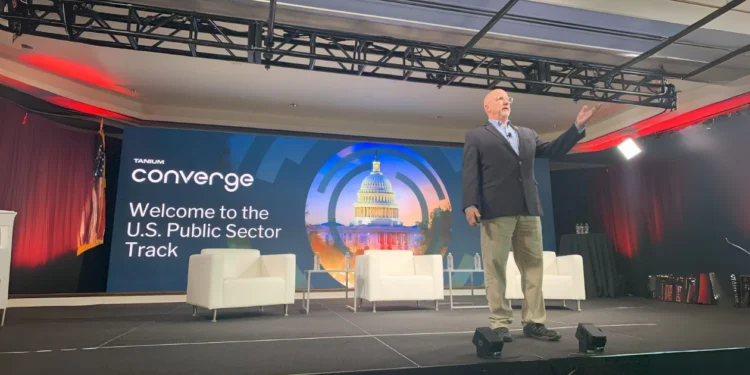Navigating ethical dilemmas and prioritizing social responsibility are paramount. Hetal Vyas stands out as a beacon of integrity, illustrating the profound impact of moral leadership. Her journey offers invaluable lessons on steering through the murky waters of ethical challenges while upholding social responsibility.
Prioritizing Social Responsibility
Corporate social responsibility (CSR) transcends the traditional boundaries of philanthropy, evolving into a comprehensive approach that integrates sustainable business practices with positive impacts on all stakeholders. This broader vision of CSR encompasses a commitment to employees, customers, communities, and the environment, aiming to foster business outcomes that benefit the company and society.
The Multifaceted Nature of CSR
Hetal Vyas’s approach to CSR is a prime example of how balancing various responsibilities can lead to enhanced business and societal benefits. By prioritizing the well-being of employees, ensuring customer satisfaction, engaging with communities, and adopting environmentally sustainable practices, companies can create a positive ripple effect that extends beyond their immediate operational scope.
- Employee Well-being: Prioritizing employees’ health, safety, and personal growth fosters a positive work environment and enhances productivity and loyalty. This approach reflects a deep understanding that a company’s success is directly tied to the well-being of its workforce.
- Customer Satisfaction: By delivering value, quality, and ethical practices, companies can build robust and trust-based customer relationships. This commitment to integrity and excellence is crucial for long-term success and reputation.
- Community Engagement: Active involvement in community projects and initiatives demonstrates a company’s commitment to social responsibility. Projects like the Whirlpool Employees Build in Haiti exemplify how businesses can contribute to societal development and well-being.
- Environmental Sustainability: Adopting sustainable business practices is a crucial aspect of CSR. Efforts to reduce environmental impact, conserve resources, and promote biodiversity underscore the importance of preserving our planet for future generations.
Strategic Integration of CSR
Integrating CSR into the core business strategy requires a strategic vision and a commitment to long-term goals. It involves rethinking business processes, products, and services through the lens of sustainability and social impact. For leaders like Hetal Vyas, this means embedding CSR principles into every aspect of business operations, from supply chain management to product development.
The benefits of prioritizing social responsibility are manifold, including enhanced brand reputation, increased customer loyalty, and the attraction and retention of top talent. Moreover, companies that embrace CSR principles are better positioned to navigate the complexities of the global business landscape, adapt to changing consumer expectations, and contribute to creating a more equitable and sustainable world.
Understanding Ethical Dilemmas in Professional Settings
Ethical dilemmas are:
- A staple of the professional landscape.
- We are presenting situations where competing values and principles clash.
- They are demanding nuanced decision-making.
These dilemmas are far from theoretical puzzles; they are real-world challenges that require immediate and thoughtful action. For leaders like Hetal Vyas, navigating these dilemmas is part of steering an organization toward its goals while maintaining ethical integrity.
The Nature of Ethical Dilemmas
The tension between short-term gains and long-term sustainability is at the heart of many ethical dilemmas. Decisions that benefit a company financially in the short term can have detrimental effects on its reputation, stakeholder trust, and sustainability in the long run. Similarly, balancing stakeholder interests against ethical standards often presents a complex scenario where the right choice is only sometimes clear-cut.
For instance, cutting costs might lead to short-term profit increases but could compromise employee welfare, product quality, or environmental sustainability. Such choices reflect the essence of ethical dilemmas: situations where competing interests and values obscure the path forward.
Real-world Implications
The decisions made in the face of ethical dilemmas can have far-reaching consequences for the immediate stakeholders, the broader community, and the environment. The impact of these decisions can extend beyond the confines of the organization, affecting societal norms and expectations regarding corporate behavior.
Hetal Vyas’s navigation of ethical dilemmas underscores the importance of moral leadership in setting a course that prioritizes long-term sustainability over transient advantages. It highlights the critical role of leaders in making decisions that align with ethical standards and the organization’s core values.
Strategies for Resolution
Resolving ethical dilemmas requires carefully assessing the situation and considering potential decisions’ immediate and long-term implications. It involves engaging with stakeholders to understand their perspectives and values, applying ethical frameworks to evaluate options, and ultimately making choices that align with honesty, fairness, and respect for others.
Leaders like Vyas exemplify how adopting a principled approach to decision-making can guide organizations through the murky waters of ethical dilemmas. Leaders can navigate these challenges by prioritizing transparency, stakeholder engagement, and a commitment to moral principles to resolve immediate issues and strengthen the organization’s ethical foundation.
The Role of Leadership in Promoting Ethical Behavior and Social Responsibility
Leadership is critical in shaping an organization’s ethical compass. The leadership style can significantly influence how employees perceive their role in moral decision-making and CSR initiatives. Through fostering an open environment where employee voice is valued, leaders can encourage ethical behaviors and a commitment to social responsibility, setting a tone that permeates the entire organization.
Fostering an Ethical Culture and Climate
Ethical culture and climate are foundational to promoting ethical behavior within organizations. This environment is shaped by formal policies and the informal behaviors that leaders exemplify. Creating and maintaining such a culture requires continuous effort and commitment to principles that support ethical behavior and social responsibility.
Strategies for Navigating Ethical Dilemmas
A clear strategy for navigating these challenges is essential in a world where ethical dilemmas are expected. Drawing from the wisdom of leaders like Hetal Vyas, we can identify several key strategies that help make ethically sound decisions. These include:
- Developing a Personal Ethical Framework: Establishing personal values and principles guiding decision-making.
- Seeking Diverse Perspectives: Consulting with diverse stakeholders to gain different insights and understand the potential impact of decisions.
- Applying Ethical Decision-Making Models: Utilizing structured frameworks to evaluate the ethical implications of various choices.
Prioritizing Social Responsibility
For Hetal Vyas, prioritizing social responsibility is not just a moral obligation but a strategic business imperative. Integrating CSR into the core business strategy offers a pathway to sustainable growth and long-term success. This section will delve into practical steps businesses can take to embed social responsibility into their operations, highlighting real-world examples and drawing parallels to Vyas’s initiatives.
The Role of Leadership in Fostering an Ethical Culture
Leadership is pivotal in shaping an organization’s ethics and social responsibility approach. This section will explore how ethical leadership can influence organizational culture, drive ethical behavior, and enhance CSR efforts. By examining the leadership qualities that facilitate these outcomes, we can offer actionable insights for leaders aiming to emulate the positive impact of figures like Hetal Vyas.
Strategies for Navigating Ethical Dilemmas
Navigating complex ethical dilemmas requires more than just a keen sense of right and wrong; it demands a deliberate and principled approach to decision-making. In the professional world, ethical challenges are inevitable, presenting situations where the right course of action is only sometimes clear. The path through these dilemmas is fraught with rationalizations that can justify unethical behavior. Yet, honesty, fairness, and respect for others stand as guiding lights, helping to steer decisions in the right direction.
Developing a Personal Ethical Framework
A robust ethical framework is essential for navigating ethical dilemmas. This framework is a set of personal values and principles that guide one’s decision-making process. Leaders like Hetal Vyas exemplify the importance of such a framework, demonstrating clear, principled reasoning that eschews the gray areas of moral ambiguity for a straightforward commitment to doing what is right, even when it’s not easy.
Seeking Diverse Perspectives
Ethical decision-making can benefit significantly from seeking diverse perspectives. Consulting with a broad range of stakeholders can provide different insights and understand the potential impact of decisions from various angles. This inclusive approach ensures that all voices are heard and considered before making a decision that could affect many.
Applying Ethical Decision-Making Models
Utilizing structured frameworks and models can also aid in navigating ethical dilemmas. These models often involve questions or steps designed to evaluate the moral implications of various choices systematically. By applying these models, individuals can ensure that their decisions align with their personal and organizational values and consider the broader ethical implications.
Emphasizing Continuous Reflection and Learning
Ethical dilemmas often present learning opportunities. Reflecting on past decisions, reasoning, and outcomes can provide valuable insights for future decision-making. Continuous learning and adaptation are vital, as they help individuals and organizations refine their ethical frameworks and strategies over time.
In essence, navigating ethical dilemmas with integrity requires a multifaceted approach that incorporates personal values, seeks diversity in perspectives, utilizes decision-making models, and emphasizes continuous learning.
By following these strategies, individuals and organizations can uphold their commitment to ethical principles, even in challenging dilemmas.
His initiative with the Whirlpool Employees highlights Hetal Vyas’s commitment to community service. Built in Haiti for the 29th Annual Jimmy & Rosalynn Carter Work Project. This significant endeavor showcases the profound impact of collective action and social responsibility.
Prioritizing Social Responsibility through Community Service
A standout example of prioritizing social responsibility is Hetal Vyas’s organization of the Whirlpool Employees Build in Haiti as part of the 29th Annual Jimmy & Rosalynn Carter Work Project. This initiative reflects a deep commitment to making a tangible difference in the lives of those in need. By mobilizing volunteers to build homes, Vyas and his team demonstrate how businesses can extend their impact beyond the corporate sphere, fostering hope and rebuilding communities.
The Ripple Effects of Ethical Leadership and Social Responsibility
The Haiti Build project exemplifies the ripple effects of ethical leadership and social responsibility. Such initiatives address immediate needs and cultivate a culture of empathy, collaboration, and commitment to positive social impact. Leaders like Hetal Vyas, who champion these causes, enrich their organizations’ ethical footprint and contribute significantly to societal well-being.
Through these efforts, Vyas’s leadership illuminates the path for other organizations, demonstrating that integrating social responsibility into business strategies is feasible and rewarding. This holistic approach to leadership and business underscores the interconnectedness of ethical practices, social responsibility, and community engagement, offering a blueprint for future endeavors that aim to balance profit with purpose.
Ethical Leadership and Social Responsibility in the Modern Business Landscape
The journey through ethical dilemmas, prioritizing social responsibility, and understanding the nuanced challenges of professional settings illuminates the critical role of ethical leadership in today’s business landscape. Leaders like Hetal Vyas exemplify the profound impact that principled decision-making, a commitment to social responsibility, and a deep understanding of ethical challenges can have on organizations and society.
Ethical leadership is not merely about navigating the complexities of moral dilemmas; it’s about setting a course that prioritizes long-term sustainability and the well-being of all stakeholders over short-term gains. It requires a visionary approach that integrates social responsibility into the core of business strategy, ensuring businesses thrive economically and contribute positively to society and the environment.
As we’ve explored, understanding ethical dilemmas in professional settings demands a multifaceted strategy that considers the immediate and long-term implications of decisions, values the input and perspectives of stakeholders, and is guided by a robust ethical framework. This approach fosters an organizational culture that values integrity, transparency, and accountability, setting a standard for moral conduct that resonates throughout the business world.
The example of Hetal Vyas organizing the Whirlpool Employees Build in Haiti for the 29th Annual Jimmy & Rosalynn Carter Work Project further underscores the transformative power of combining ethical leadership with a commitment to social responsibility. Such initiatives address immediate needs and foster a culture of empathy, collaboration, and a shared commitment to making a positive impact.
The path to ethical leadership and social responsibility is paved with challenges and opportunities. By embracing a principled approach to decision-making, prioritizing the welfare of all stakeholders, and fostering a culture of ethical integrity, businesses can navigate the complexities of the modern world, achieving success that is both sustainable and socially responsible. Leaders who embody these values elevate their organizations and contribute to creating a more just, sustainable, and prosperous society.










